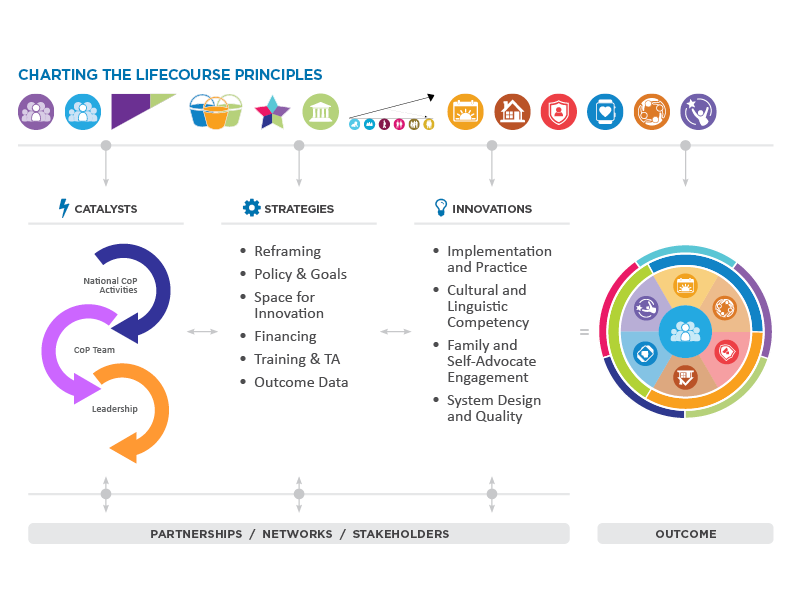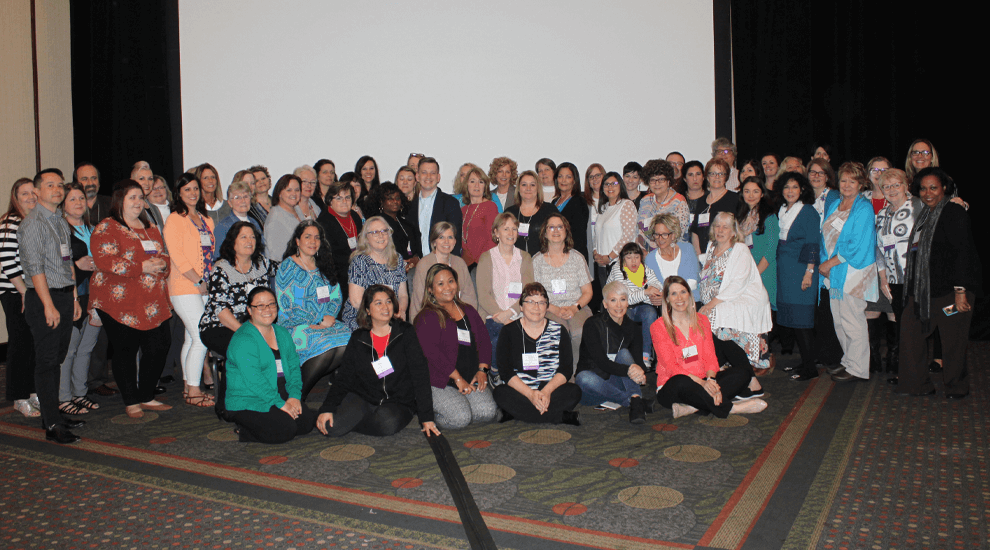Our Guiding Framework
Grounded in the belief that every person has the right to live, love, learn, work, and thrive in their community.
The National CoP for Supporting Families uses the Charting the LifeCourse Framework as a lens for transformational changes to policies, practices, and systems to support people within the context of their family.
Transformational Change for All People

What Systems Change Strives to Achieve
The outcome of systems change is supports that help individuals and families achieve a good quality of life. This is the ultimate vision for supporting families – the result of the system change. Identifying the desired outcome requires listening to self-advocates and families about what they want for their “good life.” In general, the desired outcome of system changes to better support families include:
Individuals will achieve self-determination, interdependence, productivity, integration, and inclusion in all facets of community life
Families will be supported in ways that maximize their capacity, strengths, and unique abilities to best nurture, love, and support all individual members to achieve their goals

Transforming Systems to Support a Good Life
Systems change is driven by innovations in supports offered to families, changes in infrastructure that make it more effective and flexible, and partnerships with organizations and the community. Innovations are what can be done differently, including best and promising practices. These innovations must be anchored in infrastructures that will ensure those practices will continue. Partnerships enable systems to have growth and connectivity that create culture change to both drive and enable systems innovation to occur and scale.
Family and self-advocate voices, values, and leadership are the catalysts that create momentum and provide direction for transformational change. CoP teams harness grassroots energy and leverage existing opportunities within the state system to integrate the principles of supporting families into ongoing policy, practice, and system change.
The Charting the LifeCourse framework provides both the guiding principles and the evaluative lens – it serves as the “umbrella” to guide a change in mindset, which begins with affirming the core belief that all people have the right to live, love, learn, work, play and pursue their life aspirations in the community.
The ways in which I/DD systems developed over time, have often led to services and supports that are, for the most part, reactive and crisis driven, addressing isolated life domains or discrete episodes of need. The LifeCourse framework was created to help individuals and families of all abilities and all ages develop a vision for a good life, think about what they need to know and do, identify how to find or develop supports, and discover what it takes to live the lives they want to live. Thinking through the lens of the Charting the LifeCourse framework provides systems with a more holistic approach to planning the life trajectories of both individuals and family units. This framework provides a way to understand supports to both persons with disabilities and their families across the lifespan. Additionally, the LifeCourse framework is not specific to disability but rather applicable to the human experience.
Through the work of the Community of Practice, the LifeCourse framework continues to evolve and be validated.
For more information about the Charting the LifeCourse Framework, click here.
